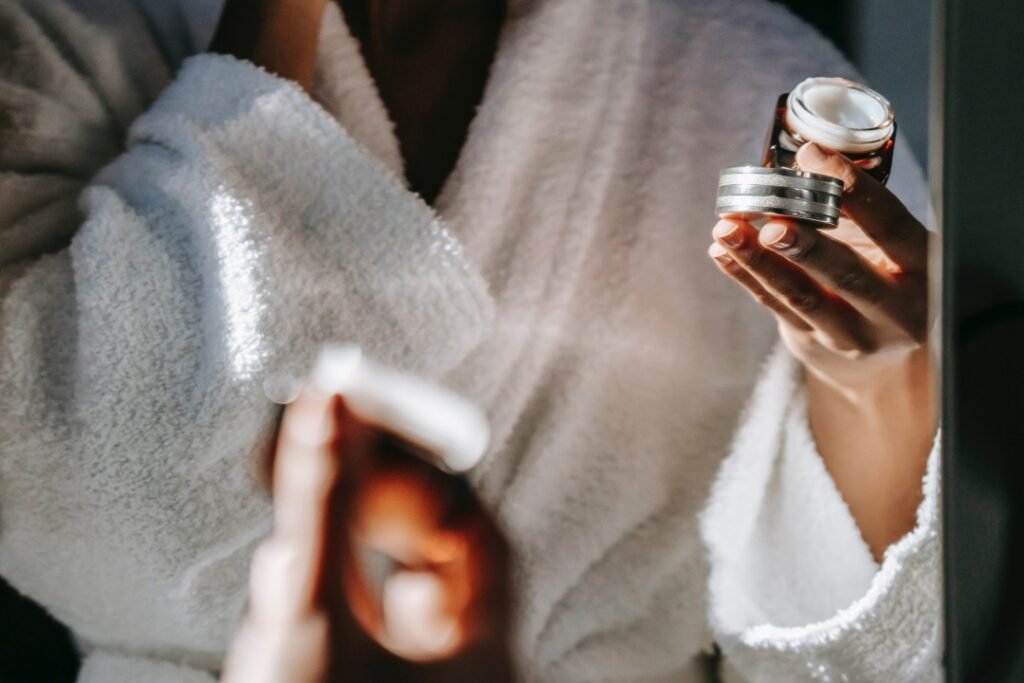Welcome to the vast and often bewildering world of beauty products, where the sheer abundance of choices can easily overwhelm even the most seasoned beauty aficionados. From the latest skincare innovations to the myriad of colour cosmetics and beyond, navigating this industry requires more than just a passing interest, it demands informed decision-making.
This guide is meticulously crafted to illuminate the path for consumers, offering essential insights and practical advice to navigate the beauty product landscape. Our aim is to empower you, the consumer, to make choices that resonate with your personal beauty ethos, ensuring that each selection adds value to your routine and aligns with your individual needs and preferences.
Understanding Beauty Product Labels
Understanding beauty product labels is crucial for making informed choices about the products we use on our skin. Labels offer a wealth of information, from the active ingredients and their concentrations to symbols and certifications that indicate product safety, efficacy, and ethical standards. Familiarising oneself with common ingredients helps identify those that benefit the skin, such as hyaluronic acid for hydration or salicylic acid for acne treatment.
Equally important is recognising harmful chemicals and potential allergens, such as parabens, sulfates, and synthetic fragrances, which can cause irritation or allergic reactions for some individuals. Symbols like the cruelty-free bunny or certifications for organic and natural ingredients can guide consumers towards products that align with their ethical and health preferences. By demystifying product labels, consumers can confidently select products that are not only effective but also safe and aligned with their values.
The Impact of Reviews and Influencer Endorsements
The influence of social media and beauty influencers on consumer choices in the beauty industry cannot be overstated. Endorsements and reviews from trusted influencers often sway purchasing decisions, guiding followers towards new products and trends. However, it’s essential for consumers to approach these endorsements with a critical eye. Not all recommendations may suit every skin type or preference, and some may be motivated by sponsorship rather than genuine appreciation.
To navigate this landscape, look for transparency in disclosures about partnerships and sponsored content. Consider the influencer’s history with similar products and whether their skin type or beauty concerns align with yours. Diversify your sources by reading reviews from multiple influencers and customers on different platforms. By applying a discerning approach to reviews and endorsements, you can make more informed choices that truly benefit your beauty regimen.
The Rise of Eco-Friendly and Ethical Beauty
The beauty industry is currently witnessing a significant shift towards eco-friendly and ethical practices, a change driven by increasing consumer awareness and concern for the planet. The rise of cruelty-free and vegan beauty products marks a pivotal move towards more compassionate and sustainable production methods. These products eschew animal testing and animal-derived ingredients, reflecting a growing demand for transparency and kindness in beauty formulations.
Eco-friendly beauty goes beyond just ingredients and animal welfare, it encompasses the entire lifecycle of the product, including packaging and sourcing. Brands are now innovating with biodegradable packaging, refillable containers, and sourcing ingredients from sustainable farms to minimise environmental impact. This trend towards green beauty is not just a fad but a movement towards a more ethical and responsible industry.
Consumers are encouraged to consider the environmental and ethical impact of their beauty choices actively. By supporting brands that prioritise sustainability and ethical practices, individuals can contribute to a healthier planet and promote a culture of conscious consumerism. As this trend continues to grow, it paves the way for a future where beauty and sustainability coexist harmoniously.
Decoding Beauty Myths and Marketing Gimmicks
Decoding beauty myths and navigating through marketing gimmicks is crucial in making informed decisions about beauty products. Here’s a breakdown to help demystify common misconceptions and marketing strategies:
- Myth: Higher Price Equals Better Quality
- Not all expensive products outperform their affordable counterparts. Price is often inflated due to branding and packaging, not necessarily product efficacy.
- Gimmick: Miracle Solutions
- Be sceptical of products claiming instant or miraculous results. Real, lasting skin improvements take time and consistent care.
- Myth: Natural and Chemical-Free
- The term “chemical-free” is misleading, everything is made of chemicals. “Natural” does not always mean safer or more effective.
- Gimmick: Limited-Time Offers
- Pressure tactics like limited-time offers can push unnecessary purchases. Research and consider your needs first.
Empowering yourself with knowledge and research is key. Look beyond the hype and seek out scientific evidence or dermatologist recommendations to support product claims. This approach ensures you invest in products that truly benefit your beauty routine without falling prey to myths or marketing ploys.
How to Build a Sustainable Beauty Routine
Building a sustainable beauty routine is both a commitment to your skin and the planet. Here are practical steps to make your beauty practices more eco-friendly:
- Opt for Multi-Use Products: Choose products that serve multiple purposes, reducing the need for excess packaging and waste.
- Refillable Containers: Support brands that offer refill options for your favourite products, significantly cutting down on plastic waste.
- Biodegradable Packaging: Look for products packaged in biodegradable or recyclable materials. Even better, support companies committed to zero-waste packaging.
- Sustainable Ingredients: Prioritise beauty products with sustainably sourced, organic ingredients that are kinder to the environment.
- DIY Skincare: Consider making some of your skincare products. Homemade masks, scrubs, and moisturisers can be effective and reduce the need for packaged goods.
- Minimise Water Use: Waterless beauty products, like bar shampoos and conditioners, not only last longer but also save water.
Thank you for joining us on this enlightening journey through the beauty industry. We hope you’re inspired to make more informed and sustainable choices. For an amazing range of products that echo the principles discussed, we recommend exploring FullyEpic. Their commitment to quality and sustainability is truly commendable.
